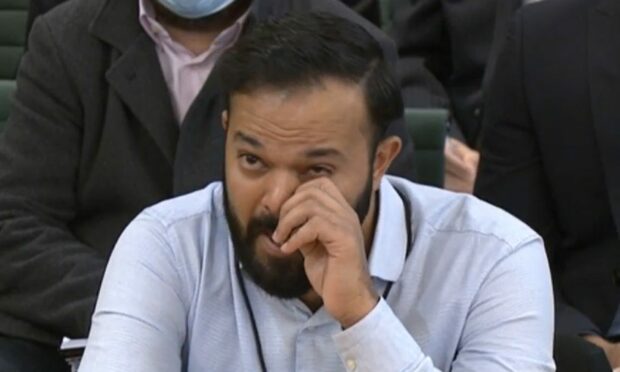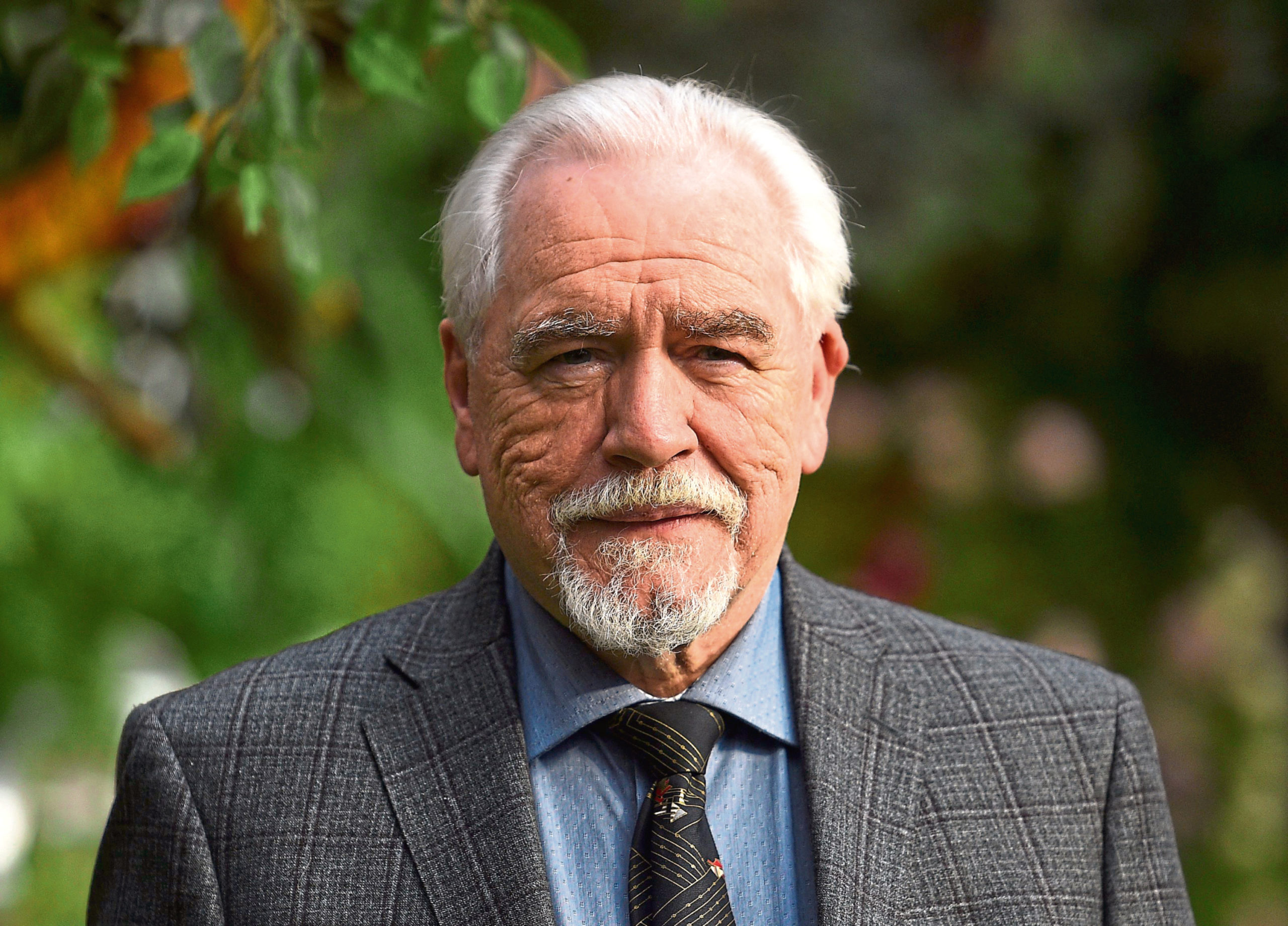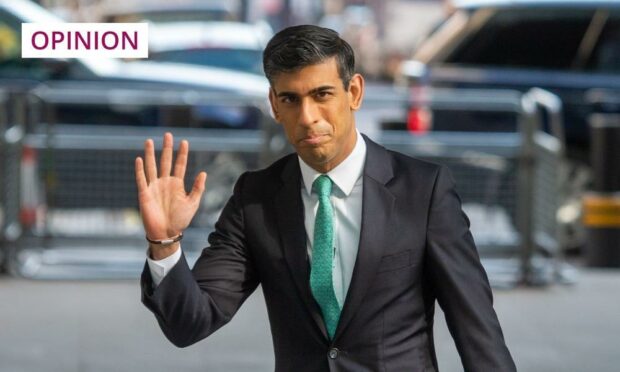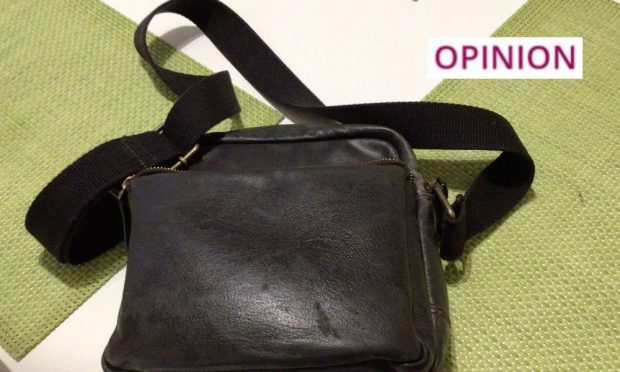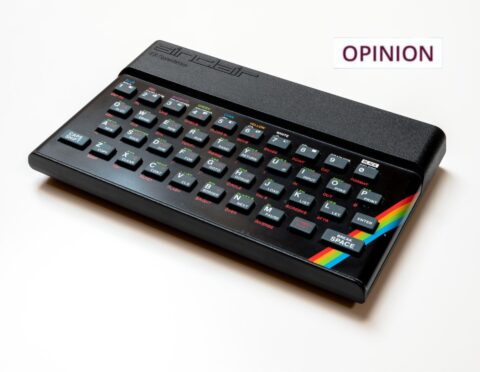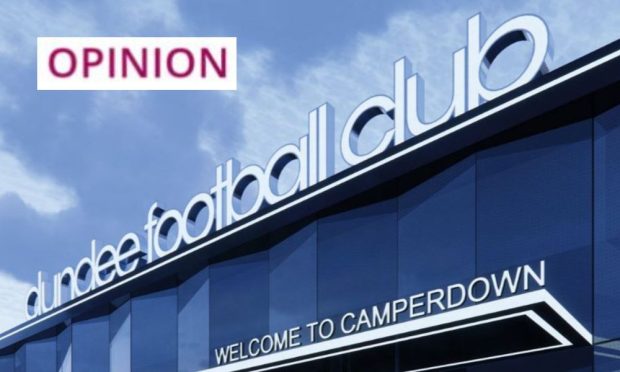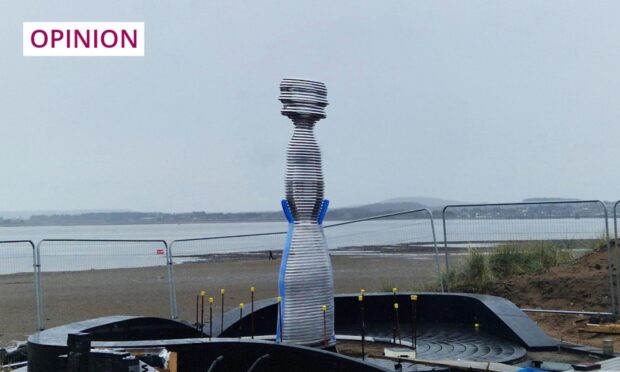Racism, bigotry, and discrimination are among the very worst of human traits.
The battle for a better more civilised society is an ongoing one and a long way from being won.
Azeem Rafiq’s testimony to MPs at the hearing into Yorkshire cricket club’s racist behaviour towards him is a grim lesson in the realities of how badly people can treat those whom they regard as different or inferior.
This case may concern Yorkshire but there’s plenty of unwashed linen in our cupboard as Scots too.
The former Yorkshire player, who had two spells at the club between 2008 and 2018, said there was an acceptance of racist abuse.
He said that the treatment he received when his unborn son died was inhuman.
How grown men or women can treat another human being in such a way on the basis of their different skin colour, or race, or religion, or indeed any defining characteristic, is a sad indictment not of wider society as is usually suggested, but of those people guilty of carrying it out and also those who do nothing to challenge it.
“Me and other people from Asian background” had comments like “you lot sit over there near the toilets, elephant washers”
Former Yorkshire cricketer Azeem Rafiq gives details to MPs of his treatment in the Yorkshire dressing roomhttps://t.co/ah7QiW0Vk5 pic.twitter.com/DEht6PPVS6
— BBC News (UK) (@BBCNews) November 16, 2021
Silence in these situations is a tacit acceptance of unacceptable behaviour which should invoke revulsion and anger in anyone with a shred of common humanity.
There’s a tendency for some folk to indulge in whataboutery in these situations; the attempt to pass off dire conduct by pointing to another incident or example of equally bad behaviour elsewhere, which should somehow exculpate those accused of the racist or bigoted behaviour in the first place.
That should always be met with a strong rebuttal.
Anyone who has shared a dressing room in even amateur sport never mind the hotbed of the professional level will know that the ‘banter’ can be lively to put it mildly.
However, there are clearly defined well established areas now which should be no go areas.
‘Generational excuse no longer holds water’
For a long time now it’s been clear that the use of the P word when talking about someone of Pakistani origin is not on.
It may well have been generational but that excuse no longer holds water.
The nature of banter is that like comedy it will push boundaries.
That’s fair enough, but it’s also fair that when someone objects to it in a personal capacity or in defence of individuals or a group of folk being picked on then it should cease immediately.
That the P word continues to find currency in day to day speech in some areas of life shows that there’s much work to be done to tackle the issue.
The line between humour and insult can be razor thin.
Some people will give as good as they get in the rough and tumble environment of a workplace or a dressing room while others will shrink into a corner in the face of what they regard as a hostile and personal attack.
‘I found Brian Cox’s recent remarks worrying’
The boundaries of humour and banter change all the time and it can be difficult terrain for everyone to traverse, but while the sensibilities of some people will be ultra-sensitive there surely can be no one with a pair of ears to hear, or eyes to see, who doesn’t’ know what is no longer acceptable behaviour or conduct.
Which brings me to Brian Cox and his recent observation regarding his hopes of independence.
The legendary Dundee actor told The Economist Asks podcast: “Scots are very different. We are Celts, we have a different sensibility. We have different cultural roots. We are not the same as the south.”
Even as one who like Cox leans towards independence, I found his remarks worrying.
To ascribe wholesale characteristics to an entire population or group of people is dangerous.
To suggest as he did that we Scots had moved from tribalism to egalitarianism is wishful thinking.
It’s a form of exceptionalism dressed up in a cloak of superiority over others, in this case the English.
Brian like my brother and sisters attended St Michael’s secondary in Dundee, and like my family comes from a generation of Scots brought up in the Catholic faith.
In the west coast in particular but also in central belt Scotland that generation traditionally found certain areas like law, banking and even some trades in shipbuilding and engineering sectors pretty much off limits to them in employment opportunities.
Consigning grim tales to the history books
It was well known which employers were receptive to applications from Catholics and which were a waste of good writing paper.
It’s only in fairly recent times that that situation has changed, so holding us up as paragons of virtue over our neighbours in the south is disingenuous.
No nation, or individual, or skin colour, or race, or religion, has a monopoly on discriminatory behaviour.
All of us have our faults and our foibles.
A fellow journalist said to me recently that his ten year old and his friends were colour blind.
The quicker people of all colours, races, religions, and genders, become blind to those characteristics in others then the quicker grim tales like Azeem Rafiq’s treatment will be consigned to the history books.
JIM SPENCE: We can’t let COP26 climate hypocrites put the rest of us off fixing the planet
